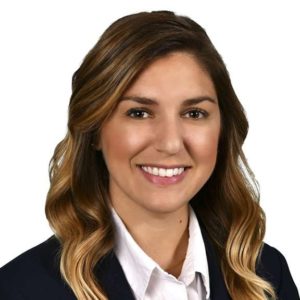
The Department of Health and Human Services (HHS) Appeals Board recently ruled in Life Care Center of Kirkland v. Centers for Medicare & Medicaid Services, and upheld a finding of immediate jeopardy as to Kirkland’s infection control policy and its operational functioning during the coronavirus pandemic.
This issue is now placed at the forefront of regulatory compliance issues for skilled nursing facilities.
The CMS-imposed civil monetary penalties (CMPs) of $13,585 a day and denial of payments for new admissions (DPNAs) were found to be reasonable and the judge reasoned that while the CMS and CDC did not begin issuing specific infection control guidance for COVID-19 until March 2020, the “fundamentals of infection control” remained unchanged.
The Kirkland case highlights HHS’ opinion that, from the early onset of COVID-19, providers had knowledge of and were bound by then existing infection control standards. More importantly, the opinion serves as a reminder that fully implementing infection control policies is just as important as having them in the first place.
What happened?
On Feb. 19, 2020, the Seattle and King County Health Department issued a pamphlet indicating that COVID-19 was a new virus strain that may spread by respiratory droplets from coughs or sneezes between people within six feet from each other. Because the virus was not spreading widely in the U.S., it was recommended to take steps like those used to prevent the spread of a cold or the flu.
The judge in the Kirkland case acknowledged, with the benefit of hindsight, that the local health department’s pamphlet, along with concurrent statements from state and federal authorities, may have given healthcare workers a false understanding of the potential risk.
Kirkland, a SNF outside of Seattle, noticed a cluster of unexplained fevers and respiratory infections on Feb. 26, 2020. That same day, the facility’s infection control nurse notified the Seattle and King County Health Department and implemented protective interventions including closing to visitors, informing families, increasing the use of personal protective equipment, closing dining and therapy rooms, cancelling group activities, and increasing bleaching of all services and public areas.

On Feb. 28, 2020, Kirkland learned that both a hospitalized staff member and a resident tested positive for COVID-19. Within the next two days, the state and county issued emergency proclamations, encouraging people to stay home if sick, wash their hands often, and to sanitize touched surfaces. Neither proclamation contained specific guidance for handling SARS-CoV-2 or its resulting illness.
Between Feb. 19 and March 7, 2020, 57 of Kirkland’s 120 residents tested positive for COVID-19, and nearly half of its staff members were unable to work. The facility’s medical director was among those sick.
On March 6, 2020, amid the chaos of a steeply rising case count, CMS began a ten-day complaint survey of Kirkland. To provide context, it was on March 11, 2020 that the World Health Organization (“WHO”) formally declared the global pandemic. The judge in Kirkland admonished CMS for conducting its survey “during a critical emergency that truly involved life and death,” stating “…it would have been a better exercise of discretion to not create any distraction that could have adversely impacted resident care.”
He also stated that “staff did almost everything correctly” and “made a heroic effort to care for and save residents.”
The Board’s decision
While the CMS survey resulted in a finding of noncompliance on seven counts, three of which allegedly placed residents in immediate jeopardy, only one count was upheld on appeal.
The facts, according to the Judge’s de novo review of the case, supported that Kirkland failed to fully implement its infection prevention control program (IPCP). On Feb. 26, 2020, the very day that Kirkland reported the uptick in unexplained fevers and set forth its infection control interventions, a previously planned Mardi Gras party was allowed to proceed that included a visiting music group. Distancing was observed at the party, but the undisputed fact that the party was held amounted to a serious violation of the IPCP and supported the finding of immediate jeopardy.
According to 42 CFR 488.301, immediate jeopardy means that noncompliance has caused, or is likely to cause, serious injury, harm, impairment, or death to a resident.
The judge ruled that a finding of immediate jeopardy “must be upheld unless it is clearly erroneous,” or that a reviewing judge or authority has a “definite and firm conviction that an error has been committed.” Because Kirkland failed to show that the declaration of immediate jeopardy for noncompliance with its IPCP was clearly erroneous, the penalty was upheld.
The complete CDC Infection Control Guidelines are available here — the infection control regulation is at 42 C.F.R. 483.80.
Norris Cunningham is a founding shareholder and leads the Health Care Practice Group at Katz Korin Cunningham PC (KKC) in Indianapolis. Contact him at [email protected].
Angela Rinehart is an associate attorney in the Health Care Practice Group at KKC and focuses her practice on the defense of long-term care providers. Contact her at [email protected].
Opinions expressed in McKnight’s Long-Term Care News columns are not necessarily those of McKnight’s.





